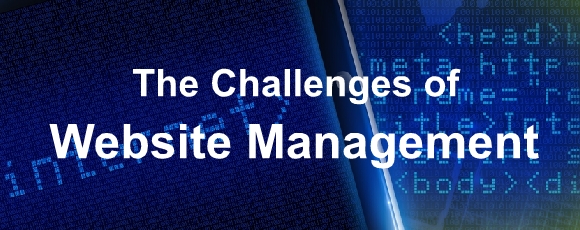
Your website is THE focal point for your Business and Brand on the internet. Do you treat it that way?
Every website requires maintenance and management – at a minimum, backups and updates. Are you qualified to manage yours?
The more features your website has, the more challenges you face in keeping your website updated and functioning properly.
Challenges
Every website owner faces these questions and challenges, especially these days when technology is changing so rapidly. New devices and operating systems mean updates to browsers. Updates to browsers mean updates to website software. And, with these updates, come online security challenges too.
So, how do you keep all of the components and parts of your website updated, safe and secure?
Consider hiring or outsourcing website management to a trustworthy person or company. You want someone who understands the importance of the following aspects of your website and who will evaluate and manage them properly.
1. Website Layout & Design
The layout and design of your website is important for bringing internet traffic to your site and for keeping people interested so they’ll stay there. They need to know how to navigate and where to find the information that they are looking for on your site.
Website layout and design are also factors of how your website is maintained. As you add or remove content to or from your site, your website needs to stay appealing and navigable. And, if your site is running slow, it not only affects a user’s experience on your site, it affects your site’s SEO (Search Engine Optimization) rankings.
2. Website Content
Your website’s content plays a huge role in drawing people in and keeping them on your site. But, as you continue to add and revise content, you introduce challenges in keeping your site consistent and easy to navigate.
From time to time, you may need to add new ways to navigate on your site. This is especially true since many people now access websites from mobile devices – just because something is easy to find, and navigate to when viewing your website on a computer, doesn’t mean it will be visible and easy to navigate on a smartphone.
3. Website Links
If your website doesn’t have links to other pages on your website, as well as, to pages on other websites, you have a website design issue that affects your SEO.
That said, most websites do have these links, and managing them is part of good website management.
All onsite links need to be validated when content is added, removed or revised.
Offsite links need to be checked from time to time to make sure that they still work and link to the intended content.
Then, there are the links that you share online – like on Social Media and offline – like in flyers or brochures. You never know when someone will click on these links – today, tomorrow, someday in the future. But, what if you’ve changed up the content on your website and that link no longer exists
Of course, we’ve all experienced it – the 404 Page Not Found. Not only is that frustrating to people, but it is a symptom of poor website management. Whenever a link is created, it should be managed. If it is for some “Special” you’re offering and the Special is over, the link should not disappear, but should be redirected to another page on your site.
Internet Traffic, SEO, Your Brand!
Getting traffic to your website, having an appealing and informative destination for that traffic, and keeping your website content fresh are important for Search Engine Optimization (SEO), but even more importantly, they are a reflection of your Business and Brand.
So, ask yourself… What does my website say about my Business and Brand?
If you’re happy with that answer, then ask yourself, if you’re doing the right things to manage and maintain your website so you continue to be happy with it!
